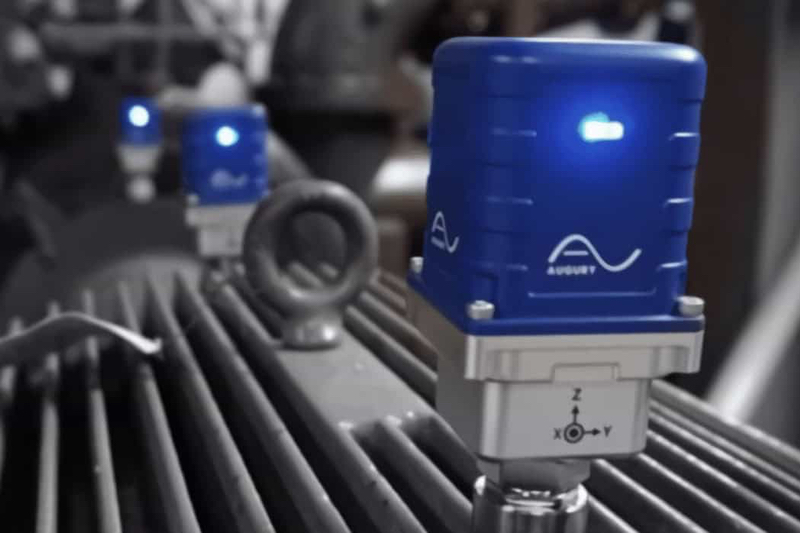The UK’s pharmaceutical sector ranks amongst the top 10 national markets globally, currently making up more than 2.3% of the industry. However, pharmaceutical manufacturers face a range of formidable production-related challenges. From stringent quality control measures enforced by regulatory boards to the pressure to meet sustainability targets, there are many hurdles players in this industry must overcome.
As the products that come from the medical and pharmaceutical industry are highly regulated, it is essential for business to meet quality standards, while also ensuring regulatory compliance, says James Newman, Head of Product + Portfolio Marketing at Augury. As viral events such as COVID-19, SARS and the recent outbreak of monkeypox become increasingly more common, the pharmaceutical industry has to find ways to cope with increasing demand for therapeutics. In this context, there is an immediate need for companies to improve their production efficiency, while maintaining the quality and reliability of life-saving medications.
Despite the growing prevalence of supply chain issues, as well as difficulties in sourcing raw materials and capacity constraints, the demand for therapeutics will persist. Recent data reveals that quality control, yield and throughput issues affect more than half of the pharmaceutical sector. Additionally, the pharmaceutical manufacturing process relies heavily on machinery, which can be prone to unplanned downtime when things go wrong. This can soon bring production to a halt, so businesses should invest in reducing the impact of maintenance on their manufacturing processes.
Over-maintenance of equipment can result in increased operational costs and reduced process inefficiency
The challenges
Pharmaceutical manufacturers face substantial challenges that can exert pressure on their production standards if not addressed early. One common issue is the over-maintenance of equipment. This common practise aims to prevent breakdowns, reduce downtime and ensure precision — but it can also result in increased operational costs and reduced process inefficiency.
Many have also adopted complex Standard Operating Procedures (SOPs), a set of instructions on how to perform specific tasks. These can help employees take a standardised approach to routine operations both on the factory floor and in batch processing strategies. All of these efforts — while understandable given safety and regulatory pressures — are expensive and inconvenient replacements for the real-time data and actionable insights that can be accrued from AI.
AI as a game-changer for pharma
Any delay in the production or distribution of medical products has the potential to have serious consequences for both the supply chain and the patients relying on these therapies. This is where AI-powered tools can play a crucial role in maintaining operational efficiency, ensuring product quality and mitigating risks.
In highly regulated industries such as pharma, complying with regulatory standards is non-negotiable. By using AI to gather actionable insights into the maintenance status and health of their machinery, operators can be can be alerted to any concerns and correct them before they lead to costly repairs or non-compliancy.
However, based on a report released by Pharma Manufacturing, 83% of pharmaceutical plants still rely on preventative — and usually inefficient — maintenance approaches like machine over-maintenance. Manufacturers that don’t use AI within their processes are missing out on an opportunity to save a significant amount of time and money. The first step toward optimal process efficiency is focusing on machine health, and the best way to do this is by resetting and improving the process with AI.
Reducing downtime and boosting efficiency
Pharmaceutical production operates under tight deadlines owing to the perishable and sensitive nature of the therapeutics being manufactured. There have been various examples of pharma manufacturers having to discard drug products and shut down their plants because of contamination, maintenance deficiencies, equipment cleanliness or failure to establish SOPs and other written procedures.
On top of losing millions in revenue, these incidents can negatively impact a brand’s reputation and trustability amongst healthcare bodies and pharmacies. By prioritising the health of their production lines, manufacturers can overcome these challenges through the utilisation of data generated by the machines themselves. The implementation of purpose-built AI allows operational teams to understand the complex relationships between machine health, process efficiency and other data sources — enabling maintenance teams to take action in real time based on changing conditions.
AI-driven maintenance approach enables the use of predictive maintenance ... allowing manufacturers to anticipate breakdowns
Transitioning from reactive to predictive maintenance
No matter the size of a company, having the ability to maintain and optimise machinery and manufacturing equipment is critical. Utilising collated data from all the functional plants on a site to predict irregularities in machine performance can lower the risk of breakdowns, while also increasing capacity and prioritising employee safety.
By detecting a machine deviation immediately, manufacturers can preserve product quality while ensuring they are compliant with global regulatory standards. Traditional maintenance strategies rely on scheduled downtime for inspections — whereas an AI-driven maintenance approach enables the use of predictive maintenance. This allows manufacturers to anticipate breakdowns, reduce the prevalence of unnecessary checks and ensure that maintenance is only carried out when it’s needed.
Predictive maintenance can not only optimise the functionality of a pharma manufacturer’s machines, but it can also
- Extend a machine’s lifespan: By detecting machinery issues early on, companies can intervene before the problem gets worse, maintaining their production assets for longer. This can also avoid damages that lead to complete breakdowns, which can be highly costly.

- Reduce waste: By assessing the health of their production lines, manufacturers can avoid the use of resources that would be necessary to fix a problem further down the line. If a company is able to mend a component rather than replacing it, they can save money and reduce the impacts of machine downtime.
AI solution providers in the pharmaceutical space, such as Augury, are helping pharmaceutical clients with the early detection of machinery issues like motor bearing wear. For example, real-time analysis enabled a client of Augury’s to plan machine repairs during a scheduled maintenance window, saving the company almost £62,000 in avoided downtime and lost product equivalent to 4.8 million tablets.
Looking forward
The pharmaceutical industry will always continue to feel pressure from multiple directions in the years ahead. This means that supply chains must become more resilient in order to meet growing demands and satisfying the ever-increasing standards of modern healthcare.
Consumers also expect transparency from drug companies, and ESG guidelines will continue to dictate how production is done. The high demand for medicines, vaccines and medical equipment means that plants need to rely on the machines that allow them to meet this. Given that building new plants can be both expensive and carbon-intensive, it may make sense to improve the efficiency on the factory floor.
AI will be instrumental on all these fronts and more, driving major advancements in all areas of pharmaceutical manufacturing. New advancements will help them with everything from accelerating development, testing and therapeutic optimisation to helping drug manufacturers to improve their yield and quality — while also reducing associated risks. As AI continues to improve as a tool, it could potentially be counted on to prioritise drug development by need or revenue opportunity. It can also be used to manage the creation, testing and marketing of these drugs.
Although AI is still relatively novel to the pharmaceutical industry, its benefits are numerous, proven and widely available. Ultimately, utilising AI can get drug products to patients who need it quicker, while also ensuring pharmaceutical companies are maximising profits.

